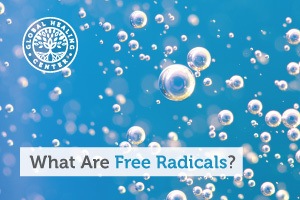Free radicals are highly reactive and unstable molecules that contain one or more unpaired electrons. Because of their unstable nature, they seek to bond with other molecules, in a process called oxidation, which can cause damage to cells, proteins, and DNA.
Free radicals can be produced by various factors, such as exposure to radiation, pollution, smoking, and metabolism. Some free radicals, such as those produced by the immune system, are important for normal physiological processes. However, an excess of free radicals can lead to oxidative stress, which is associated with various health problems, including inflammation, aging, cancer, and heart disease. Antioxidants, found in many foods and supplements, can neutralize free radicals and help prevent their damaging effects.
The mitochondria in our cells are responsible for releasing energy from the molecules in our food, but they also unleash electron-stealing free radicals like reactive oxygen and reactive nitrogen species. Fortunately, antioxidants scavenge free radicals and prevent them from causing further damage. Read full article

